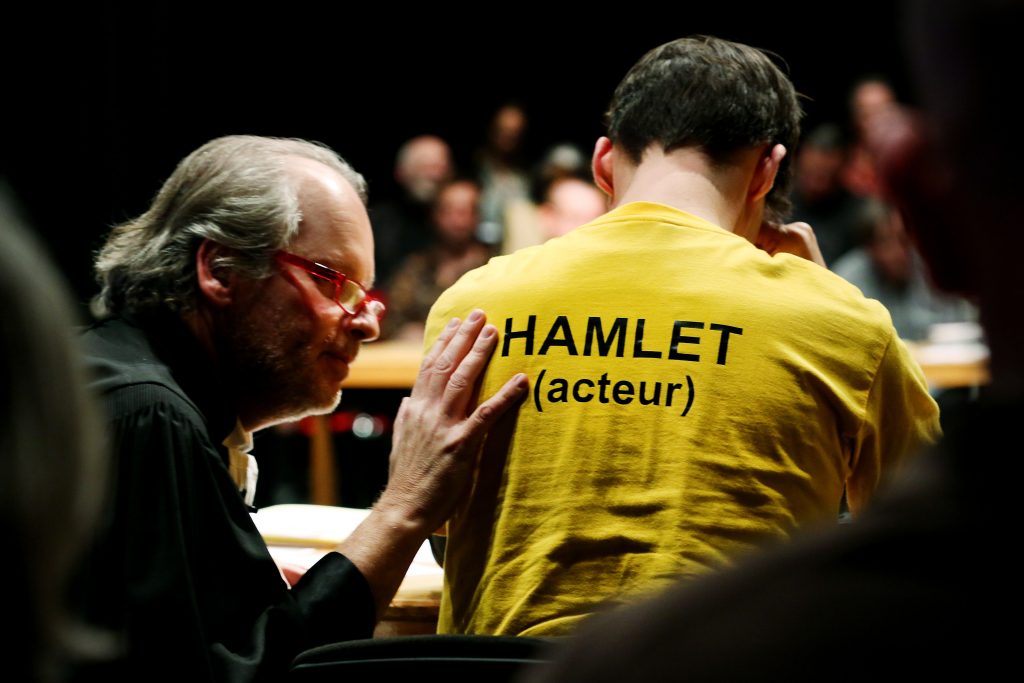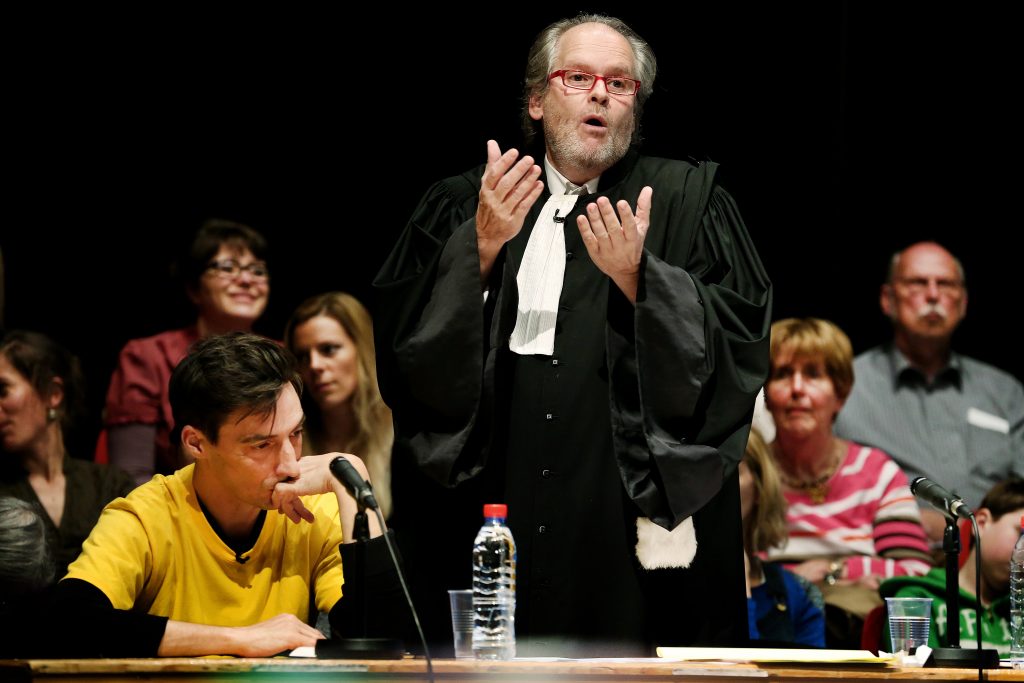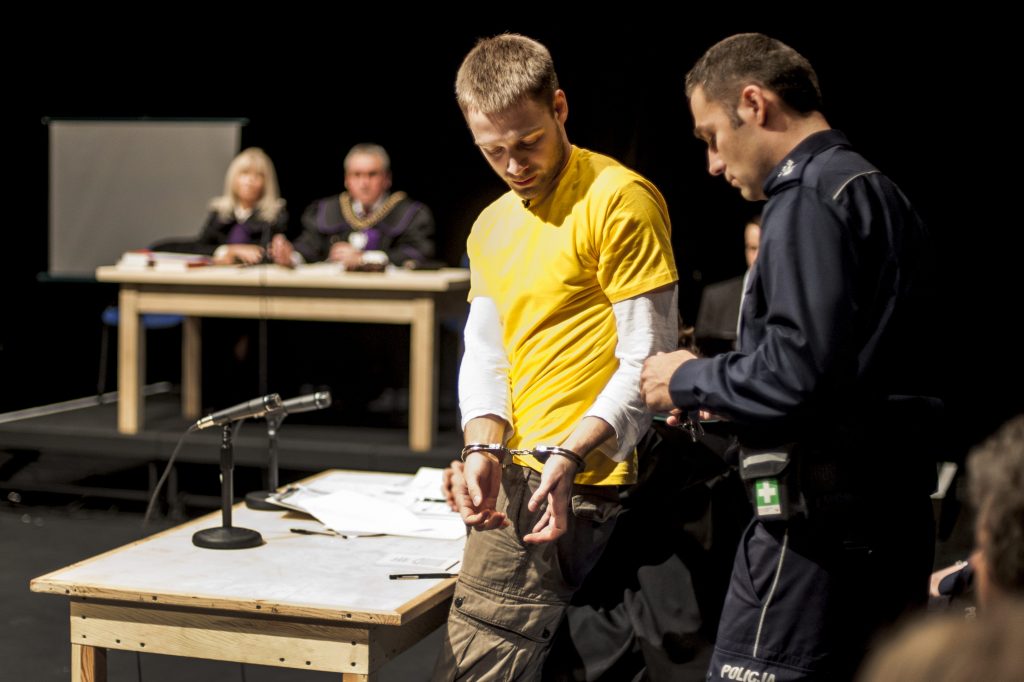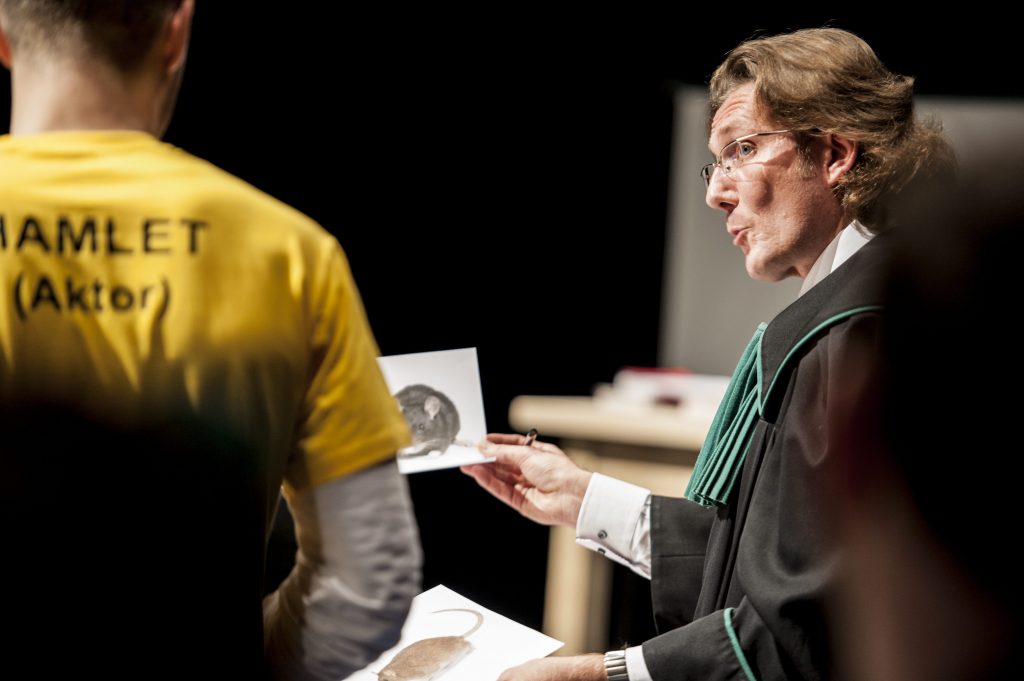
Because so many variables can influence how it’s dispensed, lots of us question the true nature of justice. Where you live, how much money or education you have, what you look like and how you speak can all prove potent influences on verdicts.
To see how the concept of justice looks around the world, Netherlands born Yan Duyvendak and Barcelona based Roger Bernat devised a grand experiment and presented it as theater. What if you tried the same case nearly 170 times in 15 countries. How much would the collective verdicts resemble one another? To add weight, relatability and shimmer to the concept, they used characters nearly everyone on the globe has at least heard of; key figures in Shakespeare’s play, Hamlet. Embedding one of Shakespeare’s great tragedies into the mix worked beautifully to imbue curiosity as well as heft into the project. Global buy-in has been more than impressive.

From Thursday to Sunday, Please Consider (Hamlet) played to Chicago audiences on the Museum of Contemporary Art’s Edlis Neeson Theater stage. Presented in conjunction with Chicago Humanities Festival, deliberate care was taken to instill a sense of the sobriety and gravity commonly found in the atmosphere enveloping a real homicide trial. As the audience filed into the theater, each was told they could be randomly chosen to act as one of the twelve jurors for the trial. Pens and notepads were provided and detailed copies of prosecution evidence was distributed during the trial. Only the very core of Shakespeare’s plot is retained in the production. Hamlet is on trial for murder, but not for that of his uncle, Claudius. Instead he stands accused of killing his girlfriend Ophelia’s father, Polonius.
Local actors took on the roles of the play’s protagonists. Enlisting black and Latin performers for the roles of Hamlet (Edgar Miguel Sanchez), Gertrude (Lily Mijekwu), his mother, and Ophelia (Krystal Ortiz) authenticated the reality of most homicide cases in Chicago as well as much of the United States.
The judge, defense team and prosecutor however were all the real McCoy; highly regarded legal professionals working in the city’s broiling criminal court system. Although the same actors are used for each night’s performance, the legal team changed every evening. Sitting Judge Anna Helen Demacopoulos of the Circuit Court of Cook County presided over the second night’s show. Defense Attorney Patricia Bob, an elected Fellow of the American College of Trial Lawyers and Marc Kadish, Mayer Brown’s Director of Pro Bono Activities made up Hamlet’s defense team. Completely unscripted, every effort had been made to keep the dialogue true to the language of homicide proceedings. Former federal prosecutor, Dan Collins, now a managing partner at Drinker Biddle, prosecuted for the state.

Compressing what ordinarily would last three to five days into an approximately four-hour endeavor, the insight into the detailed thinking required to conduct a high stakes event like a murder trial in a modern urban center comes through with dazzling clarity.
As legal professionals functioning at the top of their game, each side presented their arguments convincingly and compellingly. It was still left to a jury to determine if it was Hamlet’s intent to kill Polonius or whether he reacted on reflex to a perceived threat.

Verdicts from city to city and country to country have varied wildly. Hamlet was acquitted 86 times and even provided monetary compensation in Zurich. Murder or manslaughter verdicts were handed down 78 times with sentences ranging from one month to 15 years. On the production’s first night in Chicago, he was acquitted. On the second night, the jury was hung. Which has happened only once before, in Melbourne.
Chatter among the audience during jury deliberations gave some insight into the myriad ways the human mind parses complex information. It also validated why the notion that justice is blind can completely dissolve when viewed from the vantage point of reality.
Please Continue (Hamlet)
April 25 -28, 2019
MCA
Edlis Neeson Theater
220 E. Chicago Ave.
Chicago, IL 60611
312-280-2660
www.mcachicago.org